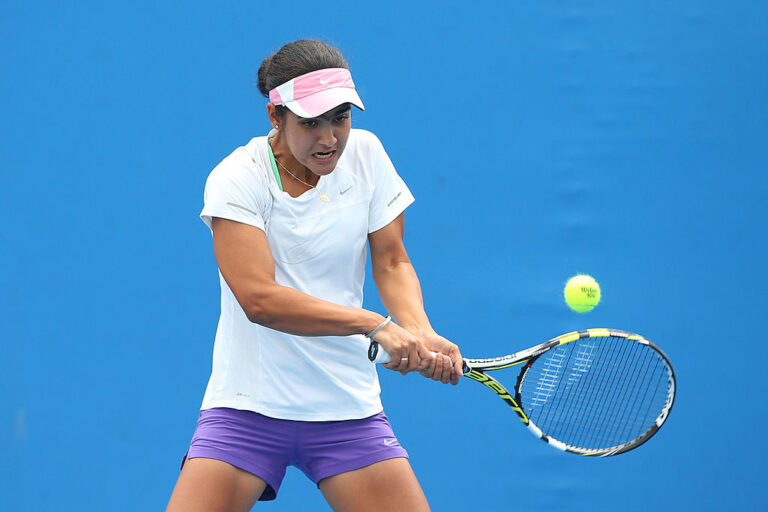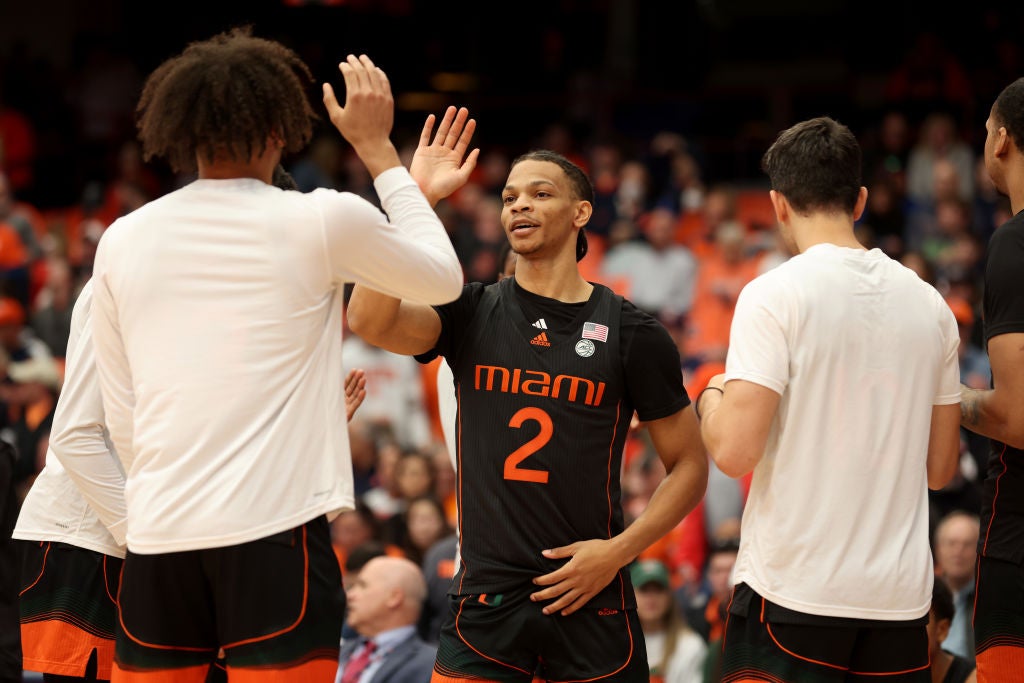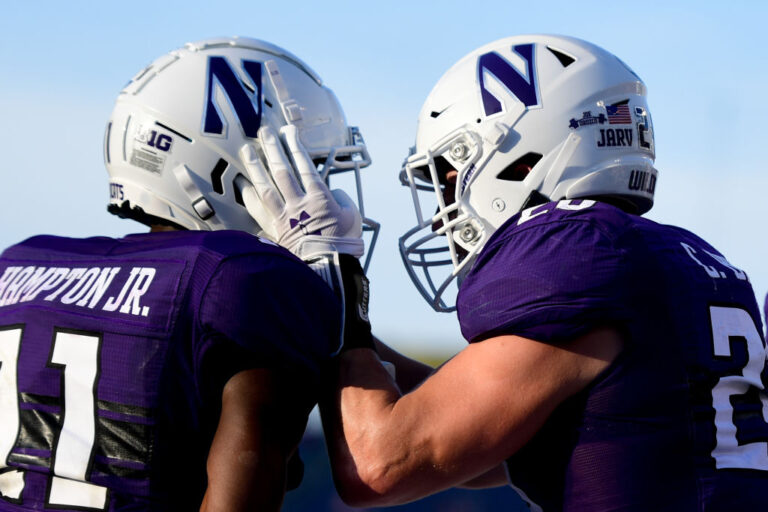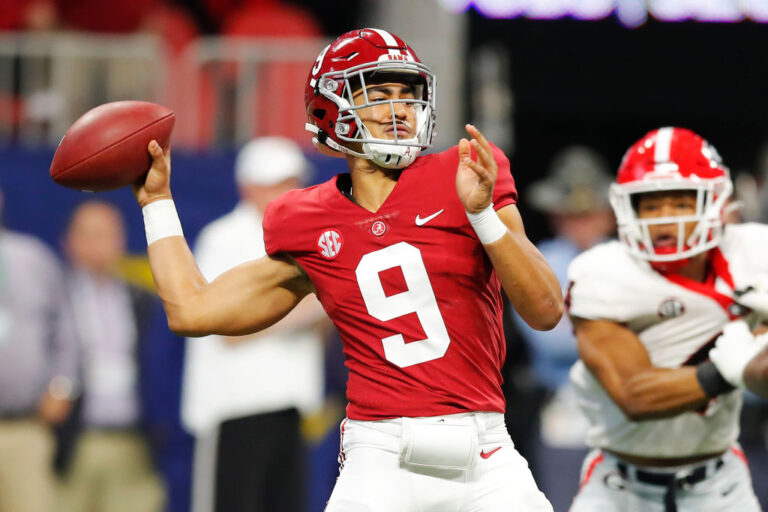How College Athletes Can Make NIL Deals That Set Them Up Now and In the Future
Why this matters
The term “wild West” is commonly used to describe the new era of name, image, and likeness in U.S. college sport. Here are six ways athletes can get clarity on the deals they’re signing and identify opportunities that work for them.
State laws and National Collegiate Athletic Association rule changes allowing athletes to profit from the use of their names, image, and likenesses (NIL) have quickly changed the landscape of college sports. While much of the discussion around this shift has focused on the recruiting fortunes of particular teams and coaches, it is important to remember the original reason NIL laws were lobbied for and subsequently implemented: to establish a more equitable dynamic for college athletes.
Is the new world of NIL enhancing their well-being? So far, athletes are enjoying new opportunities to earn money, build businesses and their personal brands, support charities and causes, and otherwise capitalize on their fame and talents. At the same time, they also face new potential financial and contractual pitfalls.
As an attorney who also covers and writes about sports, I’ve been paying extra attention to how college athletes are navigating NIL. Based on what I’ve seen and read as well as discussions I’ve had with people working in the space, here are six things I believe every athlete should consider before signing a NIL-related contract:
1. Make sure to have an experienced sports attorney or agent by your side.
College athletes should have an experienced sports attorney or contract attorney review any NIL contract they have been offered. An experienced attorney can negotiate an NIL contract for the athlete in a way that not only secures the most money, but also limits any constraints that could interfere with the athlete’s craft. They also can determine the proper length of the contract and ensure that it conforms to state laws and NCAA guidelines.
Of course, finding the right attorney or agent can be an arduous task. “Be wary of who you’re working with,” said Peter Schoenthal, CEO of Athliance, an NIL education and opportunity management solution company, who adds that athletes should understand matters of exclusivity and the length and percentage of an agent agreement. “Nobody should allow someone to piggyback off of who they are to create a name [for themselves],” he adds.
There are other options, too. Chase Griffin, a redshirt junior quarterback at the University of California, Los Angeles, decided to forego an agent completely while signing NIL deals with Shell, Degree, Scotch Porter, and others. Instead, he uses pro bono legal consulting provided by his school for individual contracts.
“I didn’t want an agent,” Griffin told me. “Because it was name, image, and likeness. Every athlete has spent too much time having someone else handle their own name, image, and likeness.
“I wanted to control the narrative, completely. And I felt like no one else would be able to sell me like I can. An agent, knowing me for two weeks and then signing me, wouldn’t know me like I know myself.”
Griffin, whose father has marketing experience, also said that he can understand how other athletes might benefit from working with an agent or personal attorney.
Related: How College Athletes Are Making ‘Massive Decisions’ in the NIL Era
Many college athletes signing NIL deals will be making money for the first time in their lives and as such, may not understand the taxes that will accompany that income, nor the ramifications of not paying them. A competent sports attorney can refer an athlete to a tax attorney or accountant.
“[The student athletes] have to make sure they put enough money aside for taxes,” said E. Courtney Scott, founder of Kontent Incubator, an educational search firm for athletes and their families. “[Paying taxes] is going to be the biggest thing, because a lot of these guys are 17, 18, and 19 years old and they’ve never had real jobs; they’ve never had any type of financial responsibility.”
Griffin said he was still working on a plan for himself and his taxes.
2. Make sure the NIL contract you are signing is based on performing a service – a quid pro quo – and not simply an inducement to attend a particular university.
One of the more contentious issues in the early stages of NIL has been whether some of the deals have been true quid pro quo arrangements, and not simply vehicles to deliver particular athletes to particular schools. In order for a NIL contract to be kosher in the NCAA’s eyes, an athlete must perform some service in exchange for compensation.
Some experts and onlookers believe that much of what is currently happening in the NIL space violates either the letter or the spirit of those guidelines – particularly when it comes to NIL collectives, associations of school-specific boosters that pool resources to offer payments to recruits and/or current players. “If I’m working with boosters and collectives, and they’re coming up with a number and then working backwards to justify it, to me, those aren’t real deals because that’s not name, image, and likeness,” Schoenthal said. “NIL does not stand for buying student athletes and bribing them to come to your favorite school. I think we have to stop calling those deals NIL deals. Those are inducements.”
The NCAA Division I Board of Directors recently released new guidelines emphasizing that NIL contracts are not meant to be recruiting inducements and that the association will punish violations. While the Board made a point of stating that they did not intend to punish athletes who already have signed deals except in the most egregious of circumstances, athletes would be wise to steer clear of any potential trouble in the future.
The easiest way to do so is to not agree to any NIL deals until after committing to a school. An athlete’s decision to attend a school can – and maybe should – be informed by the type of NIL opportunities that will be available at a school, but in order to avoid potential eligibility questions in the future, athletes should avoid contact with boosters or collectives prior to commitment. Any promises made by a company or collective prior to committing and stepping onto campus may not materialize into an actual NIL deal.
3. Know your worth – and your brand.
In order to get the most out of an NIL deal, a college athlete must understand their value to a particular company, as well as what type of company is the best fit for their image and interests. “[They] should have calculated guidance counselors that will [help determine] what they are interested in,” said Larry Lundy, President of Lundy Marketing Group, a strategic marketing and management firm serving professional and collegiate athletes. “If you’re a student athlete and you’re not going pro, but you’re interested in banking and finance, you can get name, image, and likeness opportunities there.”
Griffin agreed. “You’ve got to find something that’s authentic to you and then create content out of it,” he said. “I think content is the easiest way, because whether you graduated with a 3.7 [GPA], a 4.0 or a 2.5, either way you’ve got access to a social media account and can create content.”
Knowing your worth in the NIL space often correlates to one’s social media following and engagement on various platforms. It’s all quantifiable in an NIL deal: When student athletes have engagement rates higher than most social media influencers, it makes them more valuable, Schoenthal said.
Currently, social media makes up a large portion of NIL activity: about 72 percent, according to a monthly survey of Division I student athletes by Student-Athletes Insights. As for the rest? Other types of endorsements account for 10 percent, appearances account for 7 percent, and camps, clinics and other forms of personal instruction account for 5 percent.
4. Beware of the length of the contract, obligations, and the rights surrendered.
As is the case for anyone agreeing to a contractual obligation, college athletes must understand what they are getting themselves into. Perhaps the most important thing is to make sure that the NIL contract does not interfere with one’s craft and education.
“Number one, keep the main thing the main thing,” Lundy said. “[Student athletes] should have their own game plan. Their performance and ability on the field got them there. So continue to do those things. Do not give up a $300,000 education chasing a $1,000 [NIL] deal.”
To that end, athletes should protect their valuable time, and be wary of open-ended obligations. “As a lawyer for athletes, I want to do everything I can to avoid any sort of interruption or interference with practice and obviously with gameplay,” said Darren Heitner, a sports, entertainment, and IP lawyer and founder of HEITNERLEGAL.
Related: College Athletes Are Using NILs As a Way to Give Back
Speaking of time, ideally, athletes should limit the terms of their NIL contracts, given that their value and circumstances can improve dramatically from year to year and that most college sports careers last four years or fewer. “Do not give up your value and sign longer than a four-year deal if you think you’re going to be a top draft pick,” Lundy said. “Why sign a five-year deal or a lifetime deal? It doesn’t make any sense.”
Schoenthal concurred. “The whole point of NIL was for athletes to own themselves, to have the ability to profit off of who they are and have the right to publicity,” he said. “If you’re signing deals where you’re giving up that right and that ownership of yourself to others, it’s not a good deal.”
5. Make sure the collective or the company actually has the money they are promising to pay.
Since NIL went into effect last June, we have seen companies, boosters, and collectives throw around some very large dollar figures. The question is, are these amounts guaranteed, akin to player contracts in the National Basketball Association? Are they impressive on paper but actually non-guaranteed, like many of the contracts in the National Football League?
Are some of the announced (and rumored) NIL deals even real in the first place?
“When you hear the announcement of, let’s say, a quarterback from California being offered upwards of $8 million over a span of time, by a collective that has a mission to support the University of Tennessee,” Heitner said, “there’s no way of knowing for certain whether that collective has $8 million or $1 million in the bank right now.
“Perhaps (the deal) is used as a tool to fundraise in the future. I wonder how much [due] diligence these athletes and their counsel are conducting in order to have some assurance that the money will be there or is there – and separately, whether or not they’re requiring that there be any sort of personal guarantee in case the company or the collective becomes insolvent or bankrupt.”
As NIL deals become more lucrative, that kind of due diligence will become increasingly essential.
6. Play the long game, rather than chasing the short gain.
As hinted at above, athletes ultimately should make thorough college decisions based on their long-term goals – whatever those may be – and pursue NIL deals only after they are comfortable with their school commitments. Not only is that the best way to avoid any trouble with the NCAA, it is also the best way to maximize value and earning potential in the long run.
“I always tell families and players, you have to make the best decision based on what’s a good fit,” Scott said. “I think when you just solely make decisions based on economics or money, that’s not always a good thing. It’s not always a bad thing either, but one thing I will tell a family is don’t (choose a college) solely based on NIL.”
Schoenthal agreed. “What I would caution athletes is, ‘What’s your overall goal in life?’” he said. “‘Is your goal to become a pro athlete and get ready for life after ball? Because if that’s the case, stop chasing that short money. You’ll be able to get NIL deals no matter where you go.
“‘If you’re signing with a school solely based on who’s paying you the most, you’re not making the decision for what’s in the best interest of your future. When we talk about generational wealth and changing the course of your life, we’re talking about future decisions, not short term money, even if it’s a million dollars. You should still be focused on who’s going to develop you the best, who’s going to give you the best chance to succeed both on and off the field, and what school’s going to give you the best opportunity to get to the next level.’”
Related: Ready or Not, High School NIL Is Here
As a current college athlete, Griffin understands the lure and importance of potential NIL money, however, he cautions against viewing it as the be-all end-all in a college decision. “Most importantly, consider your entire life at the school,” he said. “Yes, there may be money initially, especially if you’re a large recruit. But, depending on the school and the tools that are there to help you learn financially, but also as a person, as a student and as a football player, go to where you think you’re going to be successful for a long time. At the end of the day, that long term is going to make more money than those four or five years.”
Many college coaches have been leery of NIL for a variety of reasons: a perceived lack of guidance from the NCAA; a lack of uniformity thanks to differing state laws; a suspicion that it will create new or exacerbate current recruiting; and competitive imbalances between schools. Florida State men’s basketball coach Leonard Hamilton is not opposed to athletes cashing in on their new opportunities, but he also believes that they shouldn’t lose sight of everything else that a particular school and program has to offer, from academics to community to relationships with coaches.
“I would tell my kid, you go somewhere where you can relate to the coach, where the role that you’re going to play is going to be significant to your overall development as a young man or woman,” he said. “Now, if all of that is equal, then of course NIL becomes a significant factor in the decision.”
Related





